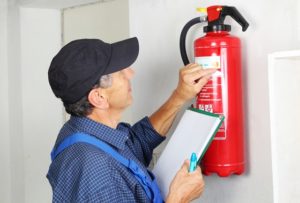10 tips on preparing your home for fall & winter
Summer camps are closed, the kids are back in school and it’s time to start thinking about getting your house ready for the upcoming winter. There are several things you should keep in mind to maintain a safe and warm home this winter – a few could even save you money on heating costs!
- Inspect and clean your chimney
Make sure your chimney is ready to go before the cold weather hits by having it inspected for cracks and other dangers by a certified professional. If you had a chimney fire and didn’t know it, the professional will find evidence and recommend fixing it before use this winter. A good cleaning – and at least one during the heating season – can help reduce the chance of a chimney fire. Remember, chimney fires can spread damaging heat to the walls, leading to total losses.
- Make sure outside vents are clear of weeds and leaves
You most likely haven’t needed to look at heating and other vents all summer, but now’s the time to make sure they didn’t get covered up with weeds or other debris, blocking important exhaust functions. Your risk of carbon monoxide poisoning increases dramatically if those vents are not allowed to work properly.
- Check levels of heating fuels
Don’t wait for the first cold snap – or the middle of the night – to realize you are out of propane, oil, dry firewood, etc. Check those levels now to be sure you are prepared, and take advantage of low rates before the heating season is in full swing. Make sure you are using dry, seasoned firewood – using “green” wood increases your risk of a chimney fire.
- Winterize attic, windows and doors to prevent heat loss
Sealing cracks and making sure your attic is properly insulated will not only help save you money in heating costs, it could help reduce your risk of an ice dam. Ice dams form when water located around the eaves of your roof is allowed to freeze and form icicles and literal dams of ice, preventing further snow melt and water from rolling off the roof. That collecting water runs into your walls and ceilings, causing severe damage inside your home. Proper insulation will help keep the eaves clear of icicles and ice dams.
- Move flammable items away from heat sources
Your heating grates and wood stoves have been shut off all summer, but now’s the time to move accumulated blankets, curtains, books and other flammable material away from heat sources. Make sure you store your firewood away from the wood stove and keep curtains from hanging over heat sources and open flames of candles. Wood stoves should be at least 36 inches from an unprotected wall, furniture and firewood. Only dispose of ashes outdoors and in a metal container with a lid.
- Candles
Never leave a candle unattended, and make sure the candle is not burning near other flammable material (curtains, carpet, wood table, etc.). Do not burn candles with less than a ½-inch of wax left. Do not leave a candle burning within reach of children and pets.
- Put snow removal and cold-weather gear in your car
Don’t wait for the first snowstorm to remember your scraper and extra mittens are in the closet at home, put them in your car today. It gets darker earlier in the winter, so add a flashlight with new batteries, too. A small shovel is also helpful if you find yourself plowed into your parking spot or need to dig for traction in a heavy snowfall.
- Check smoke and CO2 detectors

With the winter heating season nearing, make sure your smoke and carbon monoxide detectors are working and have fresh batteries. You’ll want them to work properly in the event of a problem with your heating and/or ventilation system to alert you to a life-threatening emergency before it’s too late.
- Reverse ceiling fans
Hot air rises, so if your ceiling fans are able to have their rotation reversed, do so to help bring that warmer air back down toward you. It could help you save money on heating costs by not wasting the hot air at the ceiling.
- Clean gutters
Make sure your gutters are clear of fallen leaves, sticks and other debris so snow melting off your roof has a place to go. Downspouts and joints should also be cleared, as should the runoff point at the ground. While you’re out there, drain exterior faucets and garden hoses – water left in them could freeze and crack pipes or the hose, resulting in a mess and potentially costly damage where the outside pipes enter the plumbing for the house.



